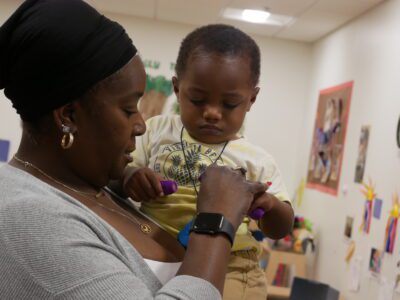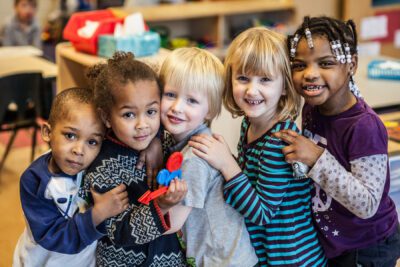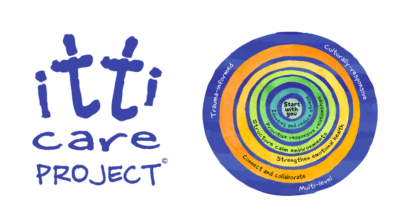

|
|
This Perspective was originally published as a blog post for the North Carolina Early Childhood Foundation on February 9, 2024.
By age six, most kids have faced challenging events that make it hard to control their feelings. One study found that 70% of children have experienced a single traumatic event or repeated moderate traumatic events that disrupt their ability to regulate their emotions.
This dysregulation often shows up as challenging behaviors. Too often, caregivers respond to these behaviors with punitive discipline, which does not teach children the skills needed to express their distress and ask for help in prosocial ways. This is a slippery slope for kids as their behavior often compounds and becomes more difficult for caregivers to manage.
Getting the tools to prevent and respond to challenging behaviors effectively can reduce — and eventually eliminate — early childhood suspensions.
Instead of punishing these behaviors, caregivers should help kids positively express their feelings. Learning to view challenging behavior through the lens of nonverbal communication can help child care and early childhood educators respond to kids in developmentally supportive ways and minimize the removal of young children from their early learning and care programs, also called “exclusionary discipline.”
As we have explored in previous briefs in this “Policy & Practice Briefs to Eliminate Child Care & Preschool Exclusion” series, we can agree that childcare and preschool suspension and expulsion can harm children’s development and often only serve to increase their behavioral challenges. They miss chances to learn how to control themselves, which can poison their future views of teachers, school, and even their ability to learn.
More briefs from this series
In “Brief 4: Strengthen the Capacity of Early Care and Learning Educators to Eliminate Exclusion,” we focus on how a child’s response to previous trauma and nonverbal behavior is often the underlying cause of their punishment and expulsion.
Access to high-quality centers matters
Racial and socioeconomic disparities impact families’ access to quality early child education and care. High-quality education programs have key programmatic factors such as well-trained staff, small class sizes, low turnover, and low teacher-student ratios. However, not all children have the same access to programs that use these practices.
Where kids live impacts whether they can go to good early learning centers. Neighborhoods with higher concentrations of families who are Black, live below the poverty line, and qualify for public assistance are more likely to have early childhood education centers that score lower on a quality rating assessment.
In centers with a lower quality rating, caregivers typically do not have access to the education they need to effectively understand the importance of preventing and responding to challenging child behaviors. These caregivers simply don’t have the training to see the behaviors in a different light.
Unfortunately, these factors and others mean that race is strongly associated with whether a student will be removed from their preschool classroom. Black children represent 18% of preschool enrollment, but 43% of children suspended one or more times from their preschools.
All our kids deserve the chance to grow up in a learning environment that embraces their developmental stage while holding space for each child’s unique needs and behaviors.
Read the full brief here and download previous policy briefs on the End Early Learning Exclusion webpage.








